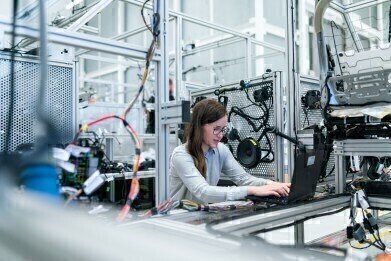News & Views
What Is the UK Government’s Strategy for Science and Innovation?
Jan 01 2015
Science and innovation are what drive 21st century development. Not only do they boost the national standard of living but they also contribute to economic growth, job opportunities, international reputation and overall prosperity. Yet despite their importance the majority of Brits have only a vague grasp on the nation’s official strategies for science and innovation. If you’re curious to know more read on for a brief overview that sheds light on the subject and will give you a better understanding of bureaucrat science and innovation policies.
An up-to-the-minute approach
Continually updating strategies to reflect current global affairs is of paramount importance. In 2014 the UK government released its official Autumn Statement which offers Brits first hand insight into the legislative take on strategies for science and innovation. At its core the newly released document offers an overview of the major principles that will influence the UK’s official policies on the ultra-important fields over the coming few years.
Insight into funding allocations
As well as a summary of key guiding principles the document also details a number of major funding priorities. A major area of expenditure is a £5.9 billion investment into research infrastructure during the 2016-2021 period. A £3 billion investment will support capital expenditure, with the majority of the cash fed into laboratory infrastructure. £2.9 billion will support the development of scientific "Grand Challenges," a division that includes a £30 million financing commitment to XFEL, the UK’s international laser project. According to Chancellor George Osborne the science and innovation policies reflect the UK’s commitment to fronting an upcoming European rover mission to Mars. An additional £61 million will also be invested in a "catapult," a purpose built centre designed to bring together the very best business and science expertise in the country. The focus of the “catapult” falls primarily on high value manufacturing techniques with the aim of boosting the UK’s international industrial power.
A quintuplet of underlying principles
The Department for Business, Innovation and Skills maintain that the strategy for science and innovation should be based on the five key principles of excellence, agility, collaboration, place and openness. The Autumn Statement falls into line with these guidelines and has been engineered to help the UK excel in 2015 and beyond.
Greg Clark, UK Science Minister explains, "This strategy builds on the great strengths of British science and enterprise and will make sure the UK is the best place in the world to do science and grow an innovative business." As the UK continues to maintain its status as a global superpower we can expect to see ongoing changes and enhancements to its official science and innovative policies.
More from Greg Clark
Greg Clark has featured on Labmate several times recently. Along with Deputy Prime Minister Nick Clegg, Greg Clark was able to see how advances in science and engineering are shaping future technology during a visit to STFC’s Rutherford Appleton Laboratory (RAL) at Harwell where a neutron beam is being used to replicate the cosmic radiation which interacts with the earth’s atmosphere.
Also, UK scientists have built a new facility aimed at understanding how particles from space can interact with electronic devices and to investigate the chaos that cosmic rays can cause – such as taking communications satellites offline, wiping a device's memory or affecting aircraft electronics. Greg Clark commented: “The Government understands how vital it is to innovate and tackle the challenges that face our electronics industry. This funding is helping to develop a facility capable of putting safety critical circuits through their paces, making planes safer and the electronics on which we all depend more reliable.” You can read more about this news story in: New UK Facility to Protect Microchips from Cosmic Chaos.
Digital Edition
LMUK 49.7 Nov 2024
November 2024
News - Research & Events News - News & Views Articles - They’re burning the labs... Spotlight Features - Incubators, Freezers & Cooling Equipment - Pumps, Valves & Liquid Hand...
View all digital editions
Events
Nov 18 2024 Shanghai, China
Nov 20 2024 Karachi, Pakistan
Nov 27 2024 Istanbul, Turkey
Jan 22 2025 Tokyo, Japan
Jan 22 2025 Birmingham, UK




.jpg)














